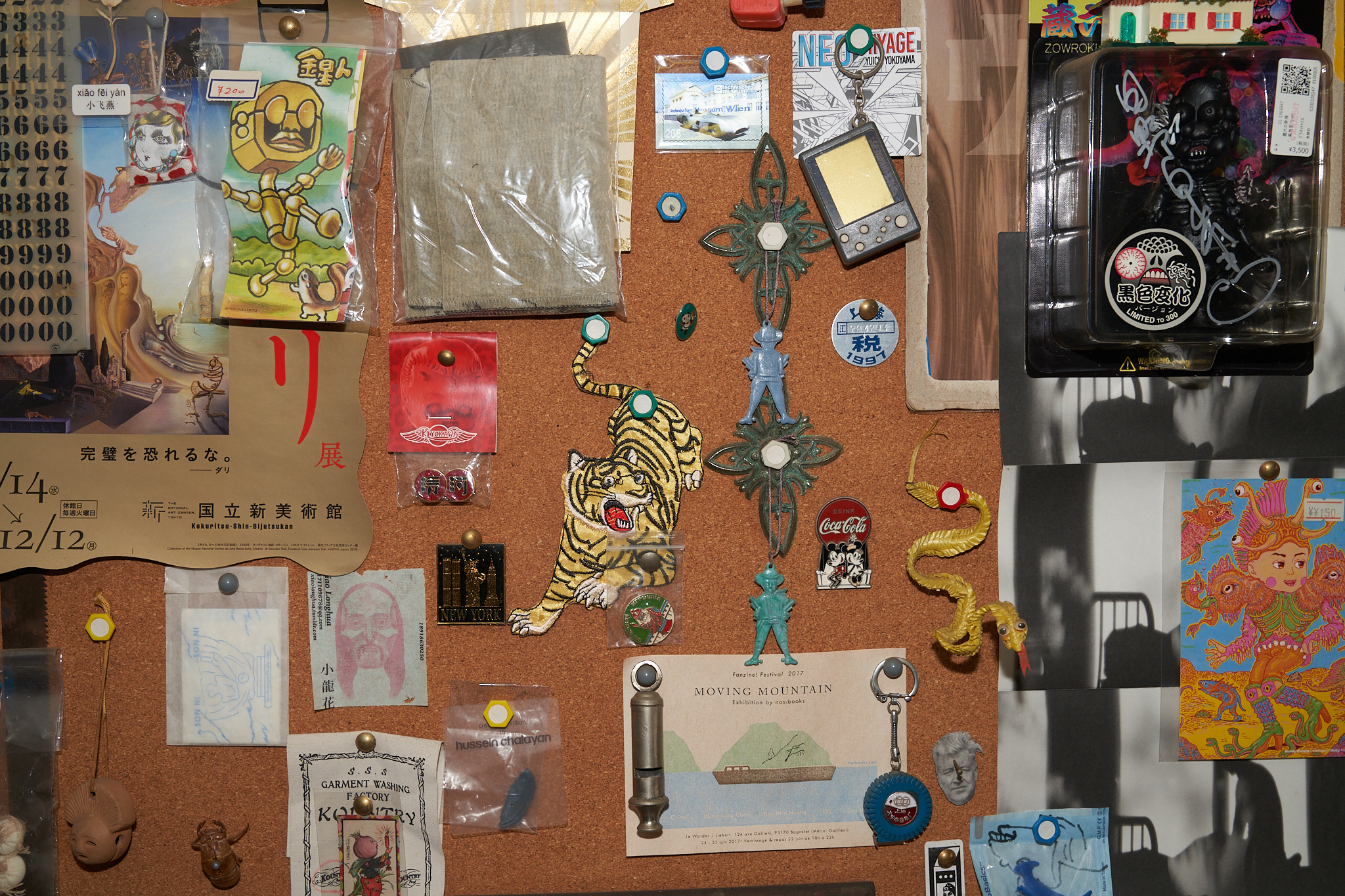LEAP x Art Basel Hong Kong 2016 Roundup
| May 14, 2016
 Despite the torrential rains that stuttered throughout the week, the fourth edition of Art Basel Hong Kong still managed to break record by attracting more than 70,000 collectors, artists, and industry professionals to gather for a week-long celebration of art. Nor did the weather deter LEAP’s participation in this year’s Basel, presenting a variety of thought-provoking talks as well as events that invited visitors to venture beyond the confines of the Convention Center and immerse in the exuberant atmosphere of the city.
Despite the torrential rains that stuttered throughout the week, the fourth edition of Art Basel Hong Kong still managed to break record by attracting more than 70,000 collectors, artists, and industry professionals to gather for a week-long celebration of art. Nor did the weather deter LEAP’s participation in this year’s Basel, presenting a variety of thought-provoking talks as well as events that invited visitors to venture beyond the confines of the Convention Center and immerse in the exuberant atmosphere of the city.


For this year’s Art Basel Hong Kong, LEAP invited six artists and graphic designer Li Weiyi to produce special advertisements stealthily camouflaged among a deluge of gallery announcements in our seventh annual Hong Kong special issue, RAZZLE DAZZLE. The special issue was distributed throughout Basel week at Modern Media’s concept booth, PAID LEAVE, a project especially commissioned by LEAP and French artist Laurent Segretier. At the booth, more than 400 towels printed with a wide selection of photographs taken by the artist on his globe-trotting paid leaves were placed all over the floor and hung casually on the wall. According to the artist and Robin Peckham, editor-in-chief of LEAP and curator of the project, not all of these images were actually taken in Hong Kong, yet they carry a sensibility that is both undeniably Hong Kong and undeniably alien; a hopeful, cosmopolitan place that we almost recognize. Together, they reveal an impending sense of sameness among all places in our globalizing, consumerist present. The project invited visitors to take these printed towels into the urban and natural landscapes of Hong Kong to rephotograph these images and upload them to WeChat and Instagram, allowing them to circulate and join new contexts, becoming shared productions with the artist.
Arguably, the highlight of the entire week came on the night of March 23. Together with ArtReview and Flash Art, LEAP invited a group of internationally renowned artists with whom we sustain deep relationships to host and present their latest work at an Emergency party. The event title was a perfect manifesto of its spirit, for every step of its production—from its inception, contacting the artists, securing a venue, to beverage arrangement and the final promotion—was executed within 24 hours. Yet the promise of performances by Alexander Geist, Ming Wong, Bendik Giske, and boychild with Wu Tsang and Korakrit Arunanondchai playing host was enough to send more than 800 people into the rainy night without umbrella or direction. The party took place at House of Siren, a secretly located club home to an inebriating collection of haute couture gowns that seemed belonging to Leigh Bowery. Dressed in identical corduroy suits, Geist and Wong gave the first performance, singing songs off their freshly released That Girl while Bendik Giske, a Berlin-based musician who was also the producer of the duo’s new album, performed a live saxophone set. If the duo’s performance seemed tailored for the nostalgic, glamorous, and subtly campy space, the following lip-sync performed by a gold-lacquered boychild evoked a chaotic moment of ecstasy that temporarily disrupted the here and now and immersed the audience in a collective imagining of queer futurity. After the performances, item idem, the New York-based DJ and founder of Shanzhai Biennial, continued with a groovy mix that kept the last of the night’s guests mingling and dancing.




During the week, LEAP also organized two talks. Titled “How to See Space,” the first talk took place at MCM’s Hong Kong flagship store’s reopening after a thorough renovation directed by German artist Tobias Rehberger that transformed the space into a dazzling piece of artwork itself. Hosted by Venus Lau, the artistic director of OCAT Shenzhen, and joined by Rehberger and Chinese artist Wang Jianwei, the talk challenged the audience to question normalized conceptualizations of space, and probed the value structures and worldviews behind the two artists’ various spatial practices.


LEAP closed out the launch events for our February issue—“Children of Empire”—with a panel named “Fluid Futures.” Hosted by Stephanie Bailey, the guest editor of the issue, and featuring LEAP’s editor-in-chief Peckham and artists Oscar Murillo, Lantian Xie, and Wu Tsang (the cover artist of our latest issue, “Actually Existing Realisms”), the talk not only was a thorough elaboration of the February issue’s investigation of how colonialism and postcolonialism remain tied together in the global cultural network we call the art world, but also pushed the questions into new territories. The hour-long panel culminated in a heated debate on whether it should be more urgent for art practitioners to intervene in existing institutions or build new ones on fresh ground in order to defy—if not eradicate—the spectres of colonialism and the hegemony of the so-called “Western father.” Eventually, the five speakers agreed that they were all children of empire, as relatively privileged subjects surviving and flourishing outside of the cultures of the center, already living in the rest of the world’s future. Against the ossifying predicaments of identity politics, they instead proposed a bias to action. The talk, which took place during the last hour of the last day of Art Basel Hong Kong, gave a critically charged ending for the hectic Basel week and affirmed LEAP’s core mission as a cosmopolitan site of cultural exchange and production.

